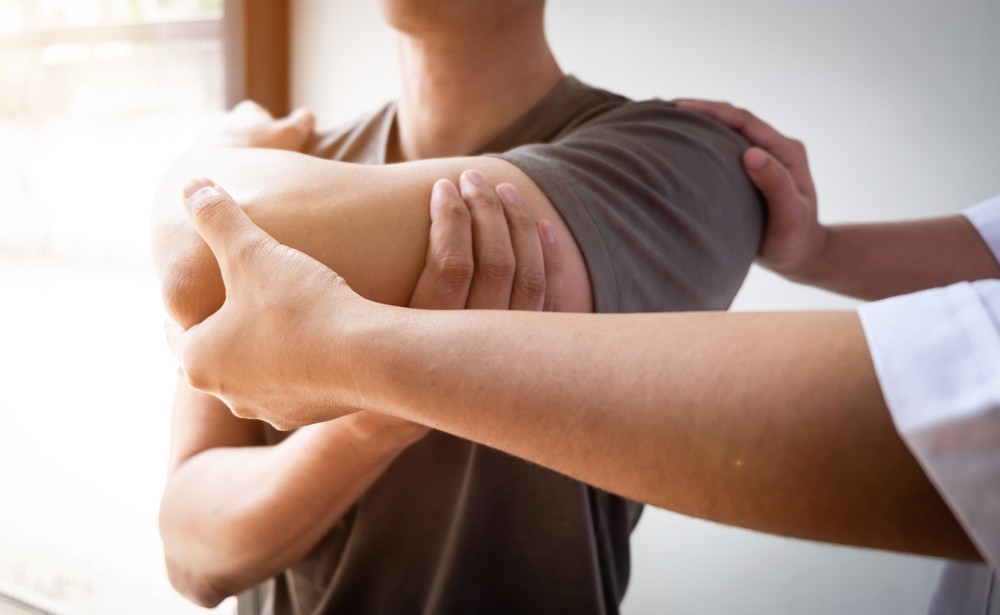Find Physical Therapy Near You and Other Essential Resources at Mid-America Orthopedics
Orthopedic health is the cornerstone of your physical well-being, influencing your ability to move, work, and engage in daily activities. Your bones, joints, ligaments, and muscles provide the framework that supports your entire body.
Maintaining optimal orthopedic health is more than preventing injury, pain, or discomfort; it’s about preserving your independence and quality of life. Strong and well-functioning bones and joints are essential for mobility, balance, and overall functionality.
Investing in measures that support your orthopedic health, such as a balanced diet and professional physical therapy from Mid-America Orthopedics, can help prevent or heal injuries and increase mobility. By familiarizing yourself with tactics that support your musculoskeletal system, you’ll be empowered to lead an active, more fulfilling life.
The Role of Nutrition in Orthopedic Health
Your dietary choices set the tone for your body’s biological responses. The food you eat gives you energy and supports your bones, organs, and tissues. Although the saying “You are what you eat” may sound rather reductive, your diet plays a significant role in your cognitive ability, physicality, and the overall function of your orthopedic system.
When evaluating your dietary choices and meal planning, be sure to consider nutrition that supports your orthopedic health.
Bone-Boosting Nutrients
Essential nutrients such as calcium, vitamin D, magnesium, and phosphorus are necessary for bone strength and health. Dairy products, leafy greens, and fortified foods are excellent sources of these nutrients.
Anti-Inflammatory Foods
Embrace an anti-inflammatory diet by incorporating foods rich in omega-3 fatty acids, antioxidants, and fiber. Fatty fish, nuts, berries, avocados, and broccoli contribute to reducing bodily inflammation and supporting joint health.
Protein for Tissue Repair and Energy
Protein is one of the body’s main sources of energy and is vital for tissue repair and muscle strength. Include lean meats like poultry and fish, eggs, beans, and tofu in your diet to support the recovery process, particularly after physical therapy sessions, workouts, or orthopedic surgeries.
Physical Therapy and Rehabilitation for Orthopedic Wellness
When patients have undergone surgery or are recovering from an injury, professional physical therapy and rehabilitation serve as valuable building blocks for restoring mobility and increasing functional strength.
Core elements of physical therapy support recovery progress.
Customized Exercise Programs
Physical therapy is more than just exercise; it’s a solutions-oriented approach to overcoming physical limitations related to surgery, injury, and dysfunction.
A person recovering from rotator cuff surgery, for example, will follow a physical therapy regimen that focuses on the shoulder and elbow. Under the supervision of their physical therapist, they can see improvement in their shoulder’s strength, flexibility, and mobility, which will eventually help them return to daily activities or athletics.
Low Impact, Joint-Friendly Activities
Physical therapy generally consists of movements and exercises that challenge the joints and muscles without disrupting their recovery. Patients engage in low-impact exercises such as swimming, cycling, or walking to reduce stress on joints. Water-based physical therapy is particularly beneficial for its buoyancy and gentle resistance.
Professional Guidance with Body Mechanics and Recovery
People who are recovering from an injury or surgery are at risk of hurting themselves if they push their body to do something it’s not ready for. For example, a person who just had total joint replacement surgery on their knee should not attempt to walk for several weeks. Prematurely doing so runs the risk of damaging the knee joint and the surrounding tissues that are in the process of healing.
Physical therapists provide guidance on proper body mechanics to prevent strain and minimize the risk of complications. Techniques for safely lifting, bending, and sitting are essential for long-term joint health.
If you’re searching for professional physical therapy near you in Wichita, contact Mid-America Orthopedics today to arrange a consultation.
Best Practices for Orthopedic Well-Being
According to recent statistics, roughly half of the U.S. population suffers from at least one orthopedic issue, making the category one of the most common people face.
The best way to treat orthopedic issues is to prevent them from happening in the first place. You can help reduce your risk of developing an orthopedic issue by:
- Maintaining a healthy weight.
- Staying hydrated.
- Getting plenty of rest.
- Eating a balanced diet.
- Getting enough physical activity.
- Maintaining stress levels.
- Wearing appropriate footwear.
- Using proper technique during athletic activities.
- Getting regular orthopedic check-ups.
By following these tips, you can shorten the time you require professional physical therapy and reduce your chances of needing other orthopedic interventions.
Discuss other methods of proactively addressing common musculoskeletal issues during your first consultation with an orthopedic physician in our practice.
Contact Mid-America Orthopedics for Physical Therapy and Treatment
Improving musculoskeletal health is a multi-tiered approach that can include dietary choices, professional physical therapy, and orthopedic best practices for overall well-being. The synergy of nutrition, movement, and lifestyle choices is the key to a resilient and healthy orthopedic system.
To schedule a consultation with a physician, contact Mid-America Orthopedics at (316) 630-9300 or send us an email using the contact form on our website. For the convenience of our patients, we can typically schedule same-day or next-day appointments.

